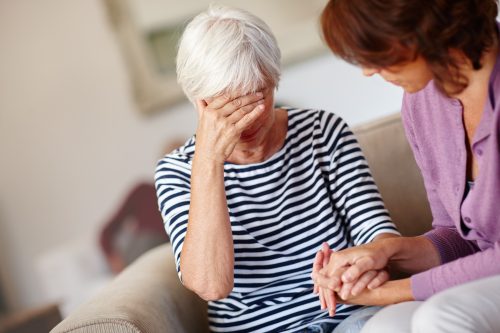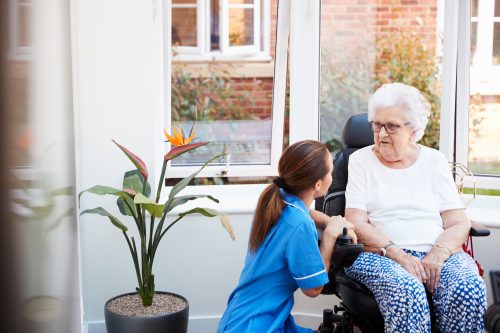
As the global population ages, the demand for assisted living facilities has surged dramatically. In the United States alone, over 800,000 Americans currently reside in assisted living, according to the National Center for Assisted Living. These facilities play a vital role in providing essential care and support for elderly individuals who may no longer be able to live independently. However, with the growing reliance on assisted living comes an even greater responsibility: ensuring the safety and well-being of residents. Among the most urgent concerns is the prevention of elder abuse. Safeguarding residents from abuse is not just a legal obligation. It’s also a profound ethical duty that every healthcare provider and staff member must uphold with unwavering commitment.
Understanding Elder Abuse in Assisted Living
Elder abuse is a serious and often underreported problem that can occur in various forms, including physical, emotional, sexual, and financial abuse, as well as neglect. In the context of assisted living, elder abuse can manifest in many ways:
Physical Abuse
This involves the use of force that results in bodily injury, pain, or impairment. Examples include hitting, shoving, or improperly using restraints.
Emotional Abuse
This includes verbal assaults, threats, harassment, or isolation that cause emotional distress. Elderly individuals may experience fear, anxiety, or depression as a result.
Sexual Abuse
Any sexual contact with an elderly person without their consent is considered sexual abuse. This is a particularly heinous form of abuse that can have devastating physical and psychological effects.
Financial Abuse
This involves the illegal or improper use of an elder’s funds, property, or assets. Financial abuse can include forging checks, stealing money or possessions, or manipulating the elder into changing their will.
Neglect
Neglect occurs when the basic needs of an elder, such as food, water, shelter, and medical care, are not met. This can be either intentional or due to negligence.
The impact of elder abuse is profound, leading to physical injuries, emotional trauma, and even premature death. For those in assisted living, the risk of abuse is heightened due to their dependence on caregivers for daily needs and their potential isolation from family and friends.
To help healthcare providers recognize, respond to, and report instances of elder abuse, we offer the Elder and Domestic Violence Abuse Reporting Training for Healthcare Providers. This comprehensive online course is designed to equip you with the knowledge and tools needed to identify the signs of abuse, understand your legal obligations, and take the appropriate steps to protect vulnerable individuals. Whether you’re a seasoned professional or new to the field, this training will empower you to take decisive action in safeguarding the well-being of your residents, ensuring they receive the care and protection they deserve.
The Ethical Duties of Assisted Living Providers

Preventing elder abuse in assisted living facilities is an ethical imperative that requires a proactive approach. Healthcare providers, administrators, and staff must recognize their duty to protect residents and ensure their well-being. The following are key ethical duties that must be upheld in assisted living environments:
Respect for Autonomy
Autonomy is a fundamental ethical principle that emphasizes the right of individuals to make informed decisions about their own lives. In assisted living, respecting autonomy means allowing residents to have a say in their care plans, living arrangements, and daily activities. Staff should encourage residents to express their preferences and involve them in decision-making processes whenever possible.
Beneficence and Non-Maleficence
The principles of beneficence and non-maleficence are central to healthcare ethics. Beneficence involves acting in the best interest of the resident. This is done by promoting their well-being and taking positive steps to prevent harm. Non-maleficence, on the other hand, requires healthcare providers to avoid causing harm. In the context of elder abuse prevention, these principles demand that staff remain vigilant for signs of abuse and take immediate action to protect residents from harm.
Justice
Justice in healthcare refers to the fair and equitable treatment of all individuals. In assisted living, this means ensuring that all residents receive the same level of care and protection, regardless of their background, financial status, or cognitive abilities. Facilities must implement policies and practices that promote fairness and prevent discrimination or neglect.
Confidentiality
Maintaining the confidentiality of residents’ personal information is an ethical duty that helps protect their dignity and privacy. Staff should be trained to handle sensitive information with care and ensure that it is not disclosed without the resident’s consent, except in cases where there is a risk of harm.
Duty to Report
Healthcare providers and staff have a legal and ethical obligation to report any suspected cases of elder abuse. This duty extends to all forms of abuse, including those perpetrated by other residents, staff, or even family members. Reporting abuse is a crucial step in protecting vulnerable individuals and ensuring that appropriate interventions are made.
Strategies for Preventing Elder Abuse in Assisted Living
Preventing elder abuse in assisted living facilities requires a multifaceted approach that includes staff training, robust policies, and a culture of respect and vigilance. Here are some strategies that can help facilities fulfill their ethical duties:
Comprehensive Staff Training
Regular training for all staff members is essential in preventing elder abuse. Training should cover the various forms of abuse, how to recognize signs of abuse, and the proper procedures for reporting and responding to suspected abuse. Staff should also be educated in the ethical principles that guide their interactions with residents.
Creating a Culture of Respect
A culture of respect and dignity within the facility is crucial in preventing abuse. This culture should be reflected in the facility’s policies, practices, and interactions with residents. Staff should be encouraged to treat residents with kindness and compassion, and any behavior that undermines residents’ dignity should be promptly addressed.
Resident and Family Education
Educating residents and their families about the signs of elder abuse and their rights can empower them to speak up if they suspect abuse. Facilities should provide clear information about how to report concerns and ensure that residents and families feel comfortable doing so.
Robust Policies and Procedures
Assisted living facilities should have clear policies and procedures in place to prevent and respond to elder abuse. These policies should include guidelines for staff conduct, procedures for reporting abuse, and protocols for investigating and addressing reported cases. Regular audits and reviews of these policies can help ensure that they are effective and up to date.
Promoting Social Engagement
Isolation is a significant risk factor for elder abuse. Encouraging social interaction among residents, involving them in community activities, and facilitating regular contact with family and friends can help reduce this risk. Socially engaged residents are less likely to experience abuse and are more likely to report any concerns they have.
Monitoring and Oversight
Regular monitoring and oversight by facility administrators can help identify potential issues before they escalate. This includes conducting routine checks on staff interactions with residents, reviewing incident reports, and soliciting feedback from residents and their families.
Conclusion
Preventing elder abuse in assisted living facilities is an ethical duty that requires the commitment of all staff members, from caregivers to administrators. By upholding principles of respect, beneficence, justice, and confidentiality, and by implementing proactive strategies, facilities can create a safe and supportive environment for their residents. As the population continues to age, the importance of these efforts cannot be overstated. Ensuring the safety, dignity, and well-being of elderly residents is not just a legal obligation—it is a moral imperative that reflects the values of a compassionate and just society.
Ensure compliance, boost efficiency, and foster trust within your team by equipping them with the knowledge and skills needed to protect your residents. Enroll your large team in our customized, free course development program today and take a proactive step toward creating a safer, more supportive environment in your assisted living facility. Together, we can uphold the highest standards of care and make a meaningful difference in the lives of elderly residents. Don’t wait—empower your team now! Click here.



